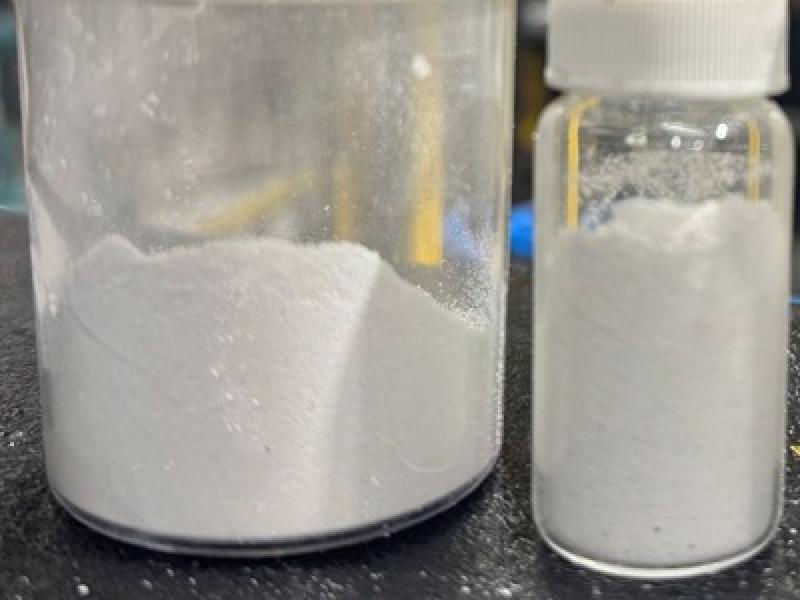
Vancouver-based DevvStream has announced the launch of its Buildings and Facilities Carbon Offset Program (BFCOP), a blockchain-based project that has the potential to revolutionize the carbon trading market by shining a light into its inner workings.
The program is specifically targeted at the real estate sector and designed to give commercial building owners a viable means of generating revenue from the decarbonization of their properties.
"The BFCOP program will enable building owners to generate additional revenue streams from activities that generate emission reductions-activities that they might not be aware can produce carbon credits – quickly and easily," DevvStream CEO Sunny Trinh said in an exclusive interview with SustainableBiz.
DevvStream is currently in the process of rolling out BFCOP in Canada and the U.S. In May, the company entered into negotiations with major real estate developers and commercial building owners to participate in a game-changing method of buying and selling carbon credits. Residential, commercial and institutional buildings, both new and retrofit, are eligible for the program, and there is no cost of onboarding the program.
DevvStream is counting on the unique verification capabilities offered by its blockchain tech platform to provide the property sector with an unprecedented level of trust and security. Trinh believes that this is how DevvStream will bring added sophistication to a carbon trading market that has unlimited room for growth.
DevvStream – developing a market with unlimited growth potential
This was the logic behind Trinh's inspired decision to harness the Devvio blockchain platform and spin off DevvStream in 2021. The new company initially pursued a business model that consisted of investing in renewable energy projects in exchange for the carbon credit rights which it then resold into the market. Now DevvStream is applying the same mechanism to the real estate sector.
According to this new model, profits from carbon credit sales are reinvested back into DevvStream, which allows it to maintain what Trinh has described as a "circular," self-reinforcing mechanism. He believes that carbon credit profits accruing back to companies will spur new investment in carbon reduction technology, which in turn produces more credits and leads to the generation of additional profits, and so on.
"This is a massive market, trillion dollar market," Trinh said. "Last year it was $900 billion when you can bring compliance and voluntary carbon trading together. But that's not anywhere near enough for us to meet our net-zero goals. Because in 2020 we had 42 gigatons of emissions and the only way to help get that figure to net-zero at some point is to use the money generated from carbon credits to enhance carbon emission reducing activities."
Trinh said DevvStream's goal is to stimulate the "technology portion of the industrial emissions sector" which is responsible for 80 per cent of emissions reductions. He identified a lack of expertise in creating "the mechanism for promoting additional credits and thus the incentives for companies to keep lowering emissions to generate more credits and have those credits monetized and repatriated in large measure back to them."

Trinh is optimistic that other companies will emulate the DevvStream model once its BFCOP program gains traction in the market.
"This is a generational opportunity to ramp up carbon trading and lower carbon emissions with the help of our blockchain technology. We believe that if we do enough of this – and we have already started seeing that there is going to be a high level of interest in what we want to do – then we'll have a very productive market.
"Even if the market stays at the current level, we'll be extremely profitable, but we expect the volume to go up as well, which will make us even more profitable. And we share (the) majority of the credits with our clients . . . That's a win-win for both sides."
Blockchain AI brings transparency to the murky carbon trading market
The underlying promise of DevvStream's attempt to reinvent the carbon trading market is its capability of bringing clarity, transparency and legitimacy to one of the murkiest and most controversial sectors in the ESG landscape.
In May, David Antonioli, CEO of Verra, a Washington-based nonprofit that dominates the $2 billion voluntary carbon market, was forced to step down after media reports the company had approved tens of millions of dollars of worthless offsets used by major companies to comply with climate and biodiversity commitments.
DevvStream intends to eliminate any possibility of greenwashing via phony carbon credits by means of a proprietary blockchain platform that brings visibility to the market.
"One of the biggest issues with the carbon credit sector right now is that there's a lack of transparency," Trinh said. "A lot of projects in the world are nature-based solutions, and a lot of them are in developing nations where they don't have connections to big corporations like a Microsoft or a Google who are buying credits."
Brokers come in and keep as much as 90 per cent of the profits, with hardly any returning to local communities or project developers and typically do not provide details about the credits, he continued. This defeats the purpose of carbon credits, as the goal should be for "the money to go these project developers so they are encouraged to continue doing what they're doing," Trinh noted.
DevvStream is working with the United Nations and offering a platform with "full transparency" by placing the data on the blockchain so stakeholders can see how the credits are being generated and their nature.
There is no double-counting or fake credits in his company's system, Trinh said.

Bitcoin and the cryptocurrency market are rooted in blockchain technology that provides a vast number of independent verifiers of transactions. DevvStream's strategic model is predicated on its discovery of a unique way of deploying blockchain verification to the trading of carbon credits.
"Carbon credits are just another digital asset," Trinh said.
"That's how we treat it. The one difference is that we use a proprietary blockchain, DevvX, from our sister company Devvio. And this approach is very different from blockchains like Bitcoin or Ethereum which have a very decentralized, almost anti-establishment cyberpunk mentality.
"But if you are a corporate entity, you can't escape government, and you need to be regulatory compliant. Devvio took a different approach with their blockchain, and built it around B2B type applications as opposed to cryptocurrency. It's the only blockchain in the world that is regulatory compliant."
BFCOP and Marmota
In the initial phase of operation, DevvStream intends to return at least 50 per cent of net revenue from all carbon credit sales to each program participant on a prorated basis.
In addition, DevvStream has created a secondary unit, Marmota, for the purpose of generating carbon credit streams in exclusive collaboration with Canadian municipalities and provincial governments.
Conceived as joint venture project, Marmota has also begun talks with local governments to accelerate the pace of decarbonization via the added stimulus provided by a fully transparent and more efficient way of buying and selling carbon offsets.
Trinh said Marmota has made progress on signing its first major participants, giving the example of two Canadian cities it expects to sign agreements with by July, and issuing credits by the fourth quarter of 2023. The two cities have the potential to generate over 650,000 carbon credits per year, he added, with over a dozen more municipalities to follow.
"We expect BFCOP to serve as a true catalyst to reduce the carbon footprint of the built environment by helping generate additional revenue to accelerate decarbonization efforts."
Incentivizing real estate developers and owners to reduce emissions
Buildings account for an estimated 30 per cent the world's energy-related carbon emissions from daily operations, with an additional 10 per cent generated by the construction process itself and its material inputs.
According to the U.S. Energy Information Administration (EIA), Canada maintains nearly 500,000 commercial and institutional buildings as compared to the six million in the U.S. This is the kind of vast, largely untapped real estate market that DevvStream believes will reap vast benefits from its incipient BFCOP program.
"A lot of these companies aren't even aware that building emissions and construction activities are eligible for carbon trades; or even if they are, they don't know how to take advantage of that because it's a very complex process," Trinh said.
"The real estate sector is taking advantage of simple solutions to lowering their carbon emissions, such as the installation of heat exchangers and pumps. But there's a cost involved, there's a capex involved. And so what DevvStream is doing is using carbon credits as a financial vehicle to help bridge that cost or at some point make it profitable to make that infrastructure transition.
"We are providing a turnkey service where we collect the data, submit it, validate it, verify it, register it, and help monetize it. Companies don't have to lift a finger, there's no cost on their side, so there's no risk . . . We believe that the carbon credit market is entering an extraordinary expansion phase that will see it grow exponentially in the decades ahead."










